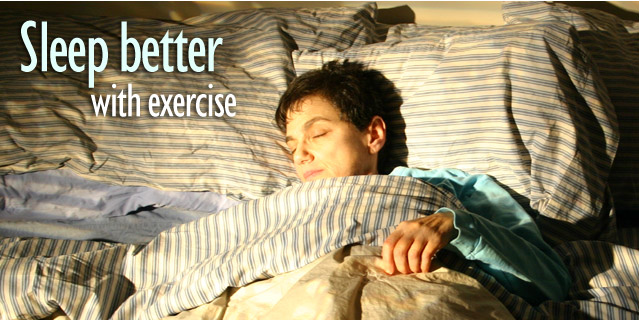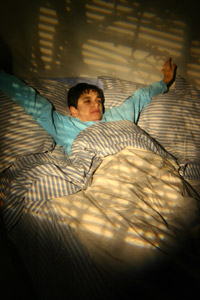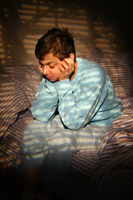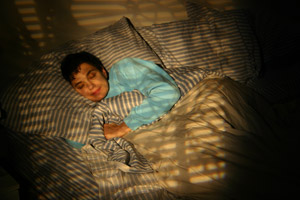 Loading... Please wait...
Loading... Please wait...- Home
- CONTACT
- COACH
- Moving Free™
- SHOP
- CLUB
- ART
- FABULOSITY®
- BIO
- CONSULT
- AMAZON
-
Live Long
- Diet & Nutrition
- Easy Exercise Videos Mirabai Holland
- Fitness Longevity
- Fabulous Forever After 50 Mirabai Holland
- Senior Exercise Videos Mirabai Holland
- Baby Boomer Exercise Mirabai Holland
- Beginner Exercise Videos Mirabai Holland
- Moving Free
- Weight Loss
- Cardio
- Strength
- Flexibility
- Body Type
- Stress Reduction
- Medical Care
-
Health
- Exercise and Memory Issues
- Chronic Stress: How To Get Rid Of It
- Exercise & Heart Disease
- Exercise & Diabetes
- Exercise & Autoimmune Diseases
- Osteoporosis
- Exercise for Arthritis
- Back Pain
- Exercise & Orthopedic Issues
- Coping With Cancer
- Pulmonary Asthma
- Exercise And Parkinson's Disease
- Perimenopause & Menopause
- Exercise & Depression
- Sleep Better with Exercise
- BLOG
Categories
Our Newsletter
Sleep Better with Exercise

Health experts recommend eight hours of sleep a night for most adults. Yet Americans average fewer than seven hours per night during the workweek. In fact, a third of adults reportedly sleep no more than six-and-a-half hours nightly. Practicing relaxation techniques and getting regular exercise can relieve stress, reduce anxiety, improve sleep and make you feel more energetic – in addition to preventing a number of age-related health problems. Exercise also engenders better self-esteem, which in turn may help you control stress by becoming more assertive, making fewer commitments and learning to manage your time more effectively. Here's a stress buster video and a couple of complete exercise programs that may help. Click the individual pictures to choose your best fit.
Too little physical activity is clearly part of why overweight is now common. But a lack of sleep may make weight loss and weight control more difficult by altering your metabolism. It may also change your eating and exercise patterns.  Some research shows that sleep deprivation leads to weight problems. In a Japanese study, children sleeping less than eight hours a night were almost three times as likely to be overweight. A lack of sleep may change hormone levels and thus influence weight gain. Higher levels of the hormone insulin have been linked to a shortage of sleep. Because insulin promotes fat storage and controls blood sugar, extra insulin could make weight loss more difficult. Studies also show that a lack of sleep leads to lower levels of the hormone leptin, which can cause an increased appetite.
Some research shows that sleep deprivation leads to weight problems. In a Japanese study, children sleeping less than eight hours a night were almost three times as likely to be overweight. A lack of sleep may change hormone levels and thus influence weight gain. Higher levels of the hormone insulin have been linked to a shortage of sleep. Because insulin promotes fat storage and controls blood sugar, extra insulin could make weight loss more difficult. Studies also show that a lack of sleep leads to lower levels of the hormone leptin, which can cause an increased appetite.
A third hormone affected by too little sleep is cortisol, linked by research to stress. When people feel threatened or stressed, their cortisol levels rise in a “fight or flight” reaction. In one study, people whose cortisol levels rose highest in response to stress had more waistline fat – and fat at the waist is related to the greatest number of risks for heart disease and other ailments.
A vicious cycle occurs when people who are tired eat sugary or fatty snacks to get more energy – but after the short-term rise in blood sugar that gives a more energetic feeling, another energy slump takes place. The extra calories are stored as body fat, and the exhaustion leads to less exercise, fewer calories burned and more weight gain.  Stress is the natural enemy of a good night’s sleep. So many of us take life to bed with us and take the quiet time in bed to go over our problems with a fine tooth comb. Of course we can’t sleep and we end up even more stressed out.
Stress is the natural enemy of a good night’s sleep. So many of us take life to bed with us and take the quiet time in bed to go over our problems with a fine tooth comb. Of course we can’t sleep and we end up even more stressed out.  Practicing Relaxation Techniques at bed time and at stressful times throughout the day can be very helpful. And, Exercising during the day definitely encourages quality sleep. However, some find that exercise right before bedtime keeps them awake because of the endorphins released. Others say it makes them conk right out. You need to find a time that works for you. In any case quality zzzzzs can help slow down your aging clock.
Practicing Relaxation Techniques at bed time and at stressful times throughout the day can be very helpful. And, Exercising during the day definitely encourages quality sleep. However, some find that exercise right before bedtime keeps them awake because of the endorphins released. Others say it makes them conk right out. You need to find a time that works for you. In any case quality zzzzzs can help slow down your aging clock.




